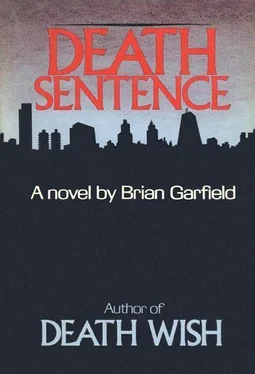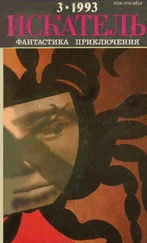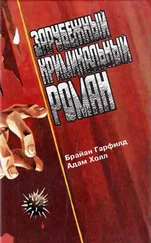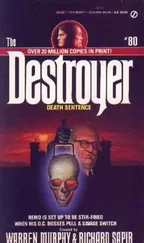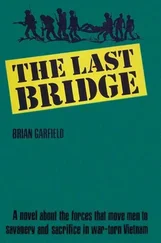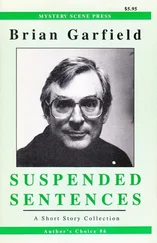The Centennial was a familiar weight in his coat pocket; he’d felt vulnerable the past few days, empty-pocketed in the city.
The chili relleno was good; he washed it down with beer. He paid the fat woman and went back to the street. It was coming up on nine o’clock and getting colder. A Christmas banner across a drugstore said “ Feliz Navidad ” and three laughing men came out of a bar, one of them carrying a six-pack.
He got back in the car frustrated: he didn’t know the city well enough. He drove in any direction, prowling.
He had no idea where he was but there was a map in the glove compartment and eventually he’d consult it and find his way home; in the meantime he had to explore.
It was a bar on a dark street somewhere a bit north and west of the center of things: through the window it looked like a boisterous drunk crowd and not far down the street two men in shabby coats sat on porch steps watching the bar. Paul had only a glimpse of them when he drove past but it was as if he read their thoughts and when he reached the corner he turned out of their sight and searched for a place to park the car. He found a spot a block away and locked the doors and circled the block on foot; he stopped at the corner and waited while several cars drove by. When he looked past the corner he saw the front of the bar and if he stepped out a pace he could see the two young men on the stoop; he did it once and then faded back because he didn’t want to alert them. They were still sitting there, passing a bottle back and forth between them — probably wine. But they were young and wiry under the tattered coats and the immobility of their features had given them away to him instantly: he knew them, he’d made a study of their kind and Chicago was no different from New York when it came to that subspecies.
He fixed the plan in his head and then stepped out into plain sight on the curb. He walked as if he were a little drunk; he didn’t exaggerate it but he moved with slow deliberate care, a bit owlish, not staggering. He looked both ways and crossed the street briskly and tripped over the curb mounting the sidewalk; he made a show of gathering his dignity and went into the bar. He hadn’t had to look at the two men on the stoop to know they’d been watching him.
There was a loud crush of celebrants. They were in shabby booths and three-deep at the bar. It was a plain saloon, at least fifty years old by the look of it and unchanged from its origins except for the blown-up photographic posters on the walls: Brendan Behan and Eugene O’Neill and someone whose face Paul didn’t recognize — probably an Irish Republican patriot from the 1920s; the room dripped with Irish accents and there was no mistaking the lilt of the ebullient shouts that exploded from the knot of fat men at the far end of the bar. A barmaid in a red wig elbowed past him with a tray of beers.
He stationed himself near the window where the two men across the street could see his back. He ordered ginger ales and drank them quickly, three in succession, and was buttonholed by two loudmouths who demanded that he settle an argument about Catfish Hunter. He pleaded ignorance and was flooded immediately with information or misinformation about baseball. When he judged enough time had passed he went back through the crowd, waited his turn and relieved himself in the men’s room. He washed the sweat off his hands and threaded his way to the front door fighting down the fear inside him: he waved drunkenly to his two conversational companions and lurched outside, all but colliding with a laughing couple on their way in.
He looked one way and then the other, a man drunk enough to have trouble remembering where he’d parked his car. Sweat slicked his palms and he rubbed them on the cloth inside his coat pockets. He started off in the wrong direction, brought himself up with anger and stumbled back toward the corner.
In the edge of his vision the two young men on the stoop sat up a bit. Their hats turned, indicating their interest in his progress.
Paul stopped at the corner and studied all four streets in turn with the great concentration of the inebriate: then he stepped carefully off the curb and weaved toward the far side, maintaining his balance with visible effort.
Inside the drunk’s act he was afraid. You don’t have to try it. You don’t have to die. Don’t come after me.
But the fear was on his tongue. It was familiar terror, an old acquaintance, a frightening thing compounded of their intentions and his own: he was afraid of them but afraid of himself as well, afraid of what he knew he would do. It was something he sensed but still did not understand.
He knew they wouldn’t leave him alone. They’d had that bar staked out for hours waiting for a mark like him; they wouldn’t get a better shot if they waited a week. A lone drunk lurching into a dark street trying to remember where he’d parked his car...
He breathed deeply and regularly to calm himself. Into shadow now and he stopped on the edge of the curb pretending anger because he couldn’t find his car. He had his back to them but he knew they were there because their silhouettes obscured the splash of streetlight when they reached the corner.
He stooped and tried to fit his key into the door of a car but it was the wrong car and he swore an oath — loud enough to reach the two men’s ears — and gave the offending car a petulant kick and went on, bending down to peer close at each parked car he passed.
When they came for him they came in a rush and one of them had the wine bottle upraised, ready to strike at the back of Paul’s skull; the other had a folding knife opened to rip upward with the extended blade.
He heard them in plenty of time but the fear paralyzed him momentarily; he moved slower than he should have — he didn’t know the gun yet, he should have allowed more time, but they were nearly on top of him when he crouched and turned, stretching his arm out.
It stopped them in their tracks. They had a good look at his undrunk eyes and the black revolver: they knew what hit them.
The noise was intense, earsplitting; the gun crashed against the heel of his hand.
The man with the wine bottle bent double. Paul shifted his aim and shot the knife man in the chest.
He barely heard the bottle shatter on the pavement. He shot both men in the heads while they were falling because they had to be dead so that they couldn’t identify him.
In a chilly sweat of terror he staggered away.
He racked the Pontiac into its stall in the underground garage. The attendant was in uniform and armed with a revolver in a holster; Paul greeted him and took the elevator straight up to his floor, the seventeenth.
It was a high-rise, 501 Lake Shore Drive, an apartment tower at the T-end of Grand Avenue. Spalter had tried to steer him to a suburban real-estate agent but Paul had spent his life in apartments except for one brief attempt to live in a house and in the end he had found Number 501 in a classified ad in the real-estate section of the Sunday Tribune and he’d taken the apartment the same afternoon.
The steel door had the ordinary slip lock and a dead bolt above. He had to use two keys to let himself in. Behind him closed-circuit TV eyes guarded the corridor. He shut the door and turned both locks before he switched on the lamps and put down his parcel on the coffee table.
He had taken it furnished on a sublet; he wasn’t sure how long he’d stay. The furniture was functional and as characterless as that of a hotel room; the lease tenant was an English instructor at the Univeristy of Chicago who was spending a sabbatical in London and who evidently was indifferent to the style of his physical surroundings; the only feature that suggested anything about its previous occupant was the long wall of floor-to-ceiling bookcases, most of them empty now. There were a living room and a bedroom and the kitchenette alcove. The windows looked out on the Loop and that meant it was a less expensive flat than the ones across the hall which commanded views of Lake Michigan and the Navy Pier. Nevertheless this was the Gold Coast and the rent was high by any standards except those of New York.
Читать дальше
